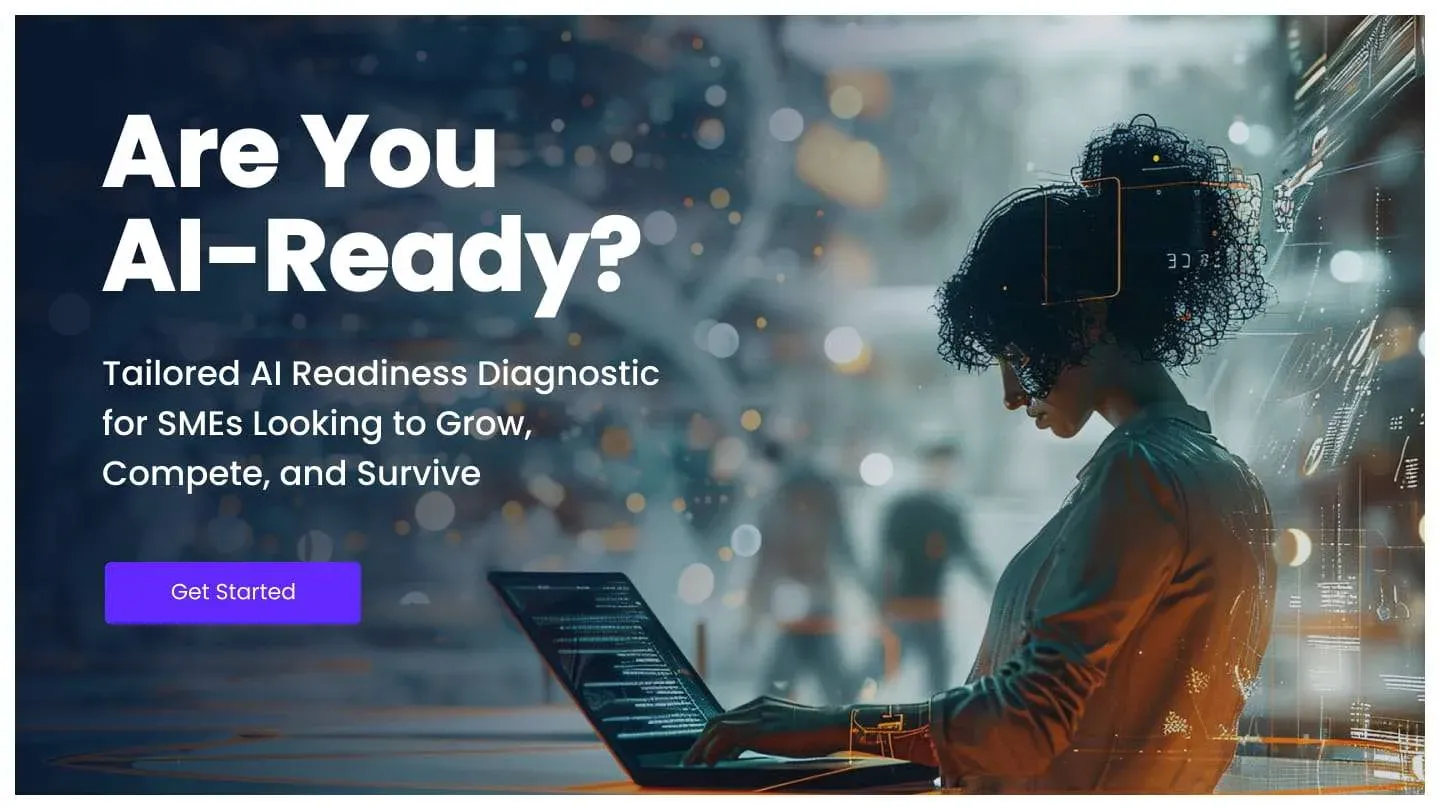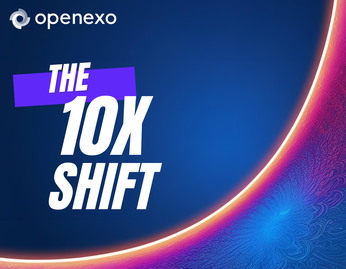
Level Up Your Business Strategy; Winners Never Stop Playing
If you think games don't belong in the workplace, think again. The most innovative companies are unlocking maximum engagement by applying game principles that level up customer loyalty and employee motivation.
"If you think games don't belong in the workplace, think again. The most innovative companies are unlocking maximum engagement by applying game principles that level up customer loyalty and employee motivation."
In an ever-evolving corporate world, companies are continually seeking innovative strategies to captivate their audiences, inspire their workforce, and propel growth. One approach rapidly gaining traction is gamification – the integration of engaging, interactive elements into traditionally routine processes. By tapping into our innate human desires for achievement, friendly competition, and social affirmation, this adopted methodology harbors the potential to revolutionize how businesses operate and cultivate connections.
If you haven't yet adopted tech tools with incentives, chances are "You're Already Being Outplayed". While you are working, your competition is playing to win. Let's look at some highlights from the book.

This chapter is part of a larger book, Exponential Organizations in Action: Community-Curated Case Studies Transforming An Abundant Future, that showcases how the exponential organization (ExO) framework pioneered by Salim Ismail, Peter Diamandis and a community of curators can be applied by small and medium enterprises and entrepreneurs, not just Fortune 500.
Gamification is the application of game design elements and principles in non-game contexts to engage users and motivate desired behaviors. At its core, gamification leverages the inherent human desires for achievement, competition, and social recognition to drive participation, engagement, and loyalty[1].
The fundamental principles of gamification involve incorporating game mechanics and dynamics into everyday activities or processes. These game elements can include points, badges, leaderboards, levels, challenges, rewards, and narratives[2]. By introducing these elements, gamification taps into our intrinsic motivations, such as the desire for mastery, autonomy, and purpose.
One of the key aspects of gamification is the use of feedback loops and reinforcement mechanisms. Just like in games, gamified systems provide users with immediate feedback on their actions and progress, often through visual cues, progress bars, or real-time updates. This constant feedback loop helps maintain user engagement and encourages them to continue participating and striving for better results.
Wisdom from Personal Development to Abundance in Business
We are skipping over a lot of the why and how that goes deeper into game theory and psychology, and headed straight to the WIIFM, aka what's in it for me.
[Excerpt from the book...
Measuring the Success of Gamification Strategies
To evaluate the effectiveness of gamification initiatives, businesses need to track and measure specific outcomes and metrics[13]. Some key performance indicators (KPIs) that can be used to gauge the success of gamification strategies include:
· Conversion rates: Measuring the percentage of users who complete desired actions, such as making a purchase, signing up for a service, or completing a registration process.
· Retention rates: Tracking the number of users who continue to engage with the gamified experience over time, indicating sustained interest and loyalty.
· User activity levels: Monitoring metrics like time spent on the platform, number of interactions, or progress through different levels or challenges.
· Social engagement: Measuring social shares, mentions, and referrals, which can indicate brand advocacy and word-of-mouth marketing.
· Employee productivity: Evaluating metrics like task completion rates, quality of work, or performance scores for gamified employee initiatives.
By carefully tracking these metrics and comparing them to pre-gamification baselines, businesses can quantify the impact of their gamification strategies[14] and make data-driven decisions about further optimizations or adjustments.
The potential return on investment (ROI) of a gamification project
Measuring the return on investment (ROI) is crucial when implementing gamification strategies, as it helps businesses justify the investment and evaluate the overall success of the initiative.
According to a study by Gallup[15], highly engaged employees result in 21% higher profitability for their companies (Gallup, 2017). Gamification can be an effective tool for increasing employee engagement, leading to improved productivity and profitability.
In the context of customer engagement, a study by Gartner found that gamification can lead to a 48% increase in customer engagement metrics, 28% increase in profit margins, and a 36% improvement in lead conversion rates (Gartner, 2011)[16].
Furthermore, a case study by Bunchball[17] showed that a gamified marketing campaign for a major consumer brand resulted in a 47% increase in user engagement and a 51% increase in social sharing, contributing to a significant boost in brand awareness and customer loyalty (Bunchball, 2016).
Although we did not have time in this article to examine the different frameworks, we cannot fail to mention the case studies and associated ROIs reported by Octalysis in its Comprehensive List of 90+ Gamification Examples & Cases with ROI Stats (2024)[18]
By carefully measuring key performance indicators (KPIs) such as employee productivity, customer engagement, and revenue growth, businesses can quantify the ROI of their gamification initiatives and make data-driven decisions about further investment and optimization.
Why business should start seriously thinking about Gamification
Gamification has proven to be a powerful tool for businesses seeking to engage their customers[19], motivate their employees, and foster a sense of community and loyalty. By tapping into fundamental human desires for achievement, competition, and social recognition, gamified experiences can drive desired behaviors, increase brand advocacy, and enhance productivity.
Whether it's through marketing campaigns, training programs, or customer loyalty initiatives, the strategic incorporation of game elements has the potential to transform ordinary interactions into memorable and rewarding experiences.
As businesses continue to explore innovative ways to stand out in a competitive landscape, gamification offers a compelling solution to captivate audiences and cultivate lasting relationships.
For those seeking a deeper understanding of gamification's principles, strategies, and real-world applications, exploring the insights and case studies presented in Exponential Organizations in Action: Community-Curated Case Studies Transforming An Abundant Future can provide valuable guidance on leveraging this powerful approach to drive business success and foster engaged communities.
... End of Book Excerpt]
Masterclass Replay with Niki Faldemolaei and Fabrizio Gramuglio
To fully harness the potential of gamification, businesses must approach it with a strategic mindset, carefully aligning interactive elements with their specific goals and target audiences. Collaboration with experts in user experience design, behavioral psychology, and motivation theory can help ensure that gamified initiatives are effective, ethical, and aligned with best practices.
As the future of business continues to evolve, those who embrace the power of purposeful engagement through gamification will be well-positioned to thrive in an increasingly competitive landscape. By tapping into our innate desires for achievement, friendly competition, and social affirmation, businesses can craft experiences that not only drive growth but also foster a sense of community and lasting investment.
See the complete chapter in:
Exponential Organizations in Action: Community-Curated Case Studies Transforming An Abundant Future
Birthed from the same decentralized community that catalyzed Exponential Organizations: Version 2.0 by Salim Ismail, Peter Diamandis, and Michael S. Malone, this audacious book charts an evolutionary path towards post-industrial abundance. It harmonizes exponential thinking with syntropic design principles and the collaborative ethos of web3, guided by the visionary ideas of our very own futurists.
Sign up for the pre-release of the Group Chapter Book built by the community for the community: https://exoangels.com/group-chapter-book/
About the Authors
Niki Faldemolaei https://linkedin.com/in/faldemolaei
Niki's portfolio includes transformative projects like Compliance Agility for SDG/ESG's, ExO Angels and the Extended Health Span Index, demonstrating her ability to reshape industries and drive impactful change.
Fabrizio Gramuglio https://www.linkedin.com/in/gramuglio/ Futurist & Exponential Advisor | Passionate Innovator | Technology Enthusiast | Mentor & Speaker on Exponential Growth & Disruption
Stewarded by ExO Angels
ExO Angels have deep ties to solving for global challenges. In recent years, there has been an increased focus on decentralized forms of social organization. This shift is in part due to the growing body of evidence that decentralized systems are more effective at meeting the needs of their members. When power is decentralized, individuals are able to make decisions that are based on the needs of their community rather than the top 1%. This leads to more equitable and sustainable societies.
One of the most important benefits of decentralized systems is that they give the female archetype a greater role in decision-making. When women are given sovereignty over their own communities, they are more likely to focus on the needs of their residents. This, in turn, leads to more sustainable and equitable societies. Decentralization is a powerful tool for promoting social justice and creating more livable communities. The time is now to embody the divine balance of nature's law.
Excerpt references:
[1] Werbach, K., & Hunter, D. (2012). For the win: How game thinking can revolutionize your business. Wharton Digital Press.
[2] Adidas Running app, which incorporates elements like challenges, leaderboards, and virtual rewards to motivate users to achieve their fitness goals.
[3] Hamari, J., Koivisto, J., & Sarsa, H. (2014). Does gamification work? A literature review of empirical studies on gamification. In 2014 47th Hawaii International Conference on System Sciences (pp. 3025-3034). IEEE.
[4] Siemens, which used gamification in their Idea Prism initiative, allowing employees to submit ideas and earn rewards, while tracking metrics like engagement rates and the number of ideas submitted.
[5] Gallup. (2017). State of the American Workplace. Retrieved from https://www.gallup.com/workplace/238085/state-american-workplace-report-2017.aspx
[6] Gartner. (2011). Gamification: Engagement Strategies for Business and IT. Retrieved from https://www.gartner.com/en/documents/1744singing the ROI of a gamification project is crucial for justifying the investment and evaluating its overall success.
[7] Bunchball. (2016). How Gamification Increased Engagement by 47% for a Major Consumer Brand. Retrieved from https://www.bunchball.com/resources/case-studies/how-gamification-increased-engagement-47-for-major-consumer-brand
[8] Yu Kai Chous: Comprehensive List of 90+ Gamification Examples & Cases with ROI Stats (2024) https://yukaichou.com/gamification-examples/gamification-stats-figures/
[9] Huotari, K., & Hamari, J. (2017). A definition for gamification: anchoring gamification in the service marketing literature. Electronic Markets, 27(1), 21-31.
#gamification #octalysis #exoattributes #exponentialorganization #syntropicworld #communityengagement #exoangels

AI-Ready by OpenExO empowers small and medium enterprises to integrate AI seamlessly into their operations, offering a comprehensive assessment, personalized implementation, and continuous strategic coaching, ensuring they not only adapt to but lead in the digital economy. This program transforms AI challenges into growth opportunities, providing SMEs with the tools and expert guidance needed to enhance efficiency, drive innovation, and secure a competitive edge. Learn more here. https://web.openexo.com/ai-ready/
ExO Insight Newsletter
Join the newsletter to receive the latest updates in your inbox.








